‘Withdraw’: Shock blow for Putin as official dies in mystery crash
Russia’s military has been ordered to leave the city of Kherson as the region’s deputy governor is killed in a mysterious car crash.
Russia ordered its troops to withdraw from the city of Kherson in southern Ukraine on Wednesday in a further major blow to its campaign amid a Ukrainian counteroffensive.
“Begin to pull out troops,” Russian Defence Minister Sergei Shoigu said at a televised meeting with Russia’s commander in Ukraine, Sergei Surovikin.
The commander had proposed the “difficult decision” of pulling back from the city and setting up defences on the eastern bank of the Dnipro River.
Kherson city was the first urban hub captured by Russia during its “special military operation” and the only regional capital controlled by Moscow’s forces since the offensive began on February 24.
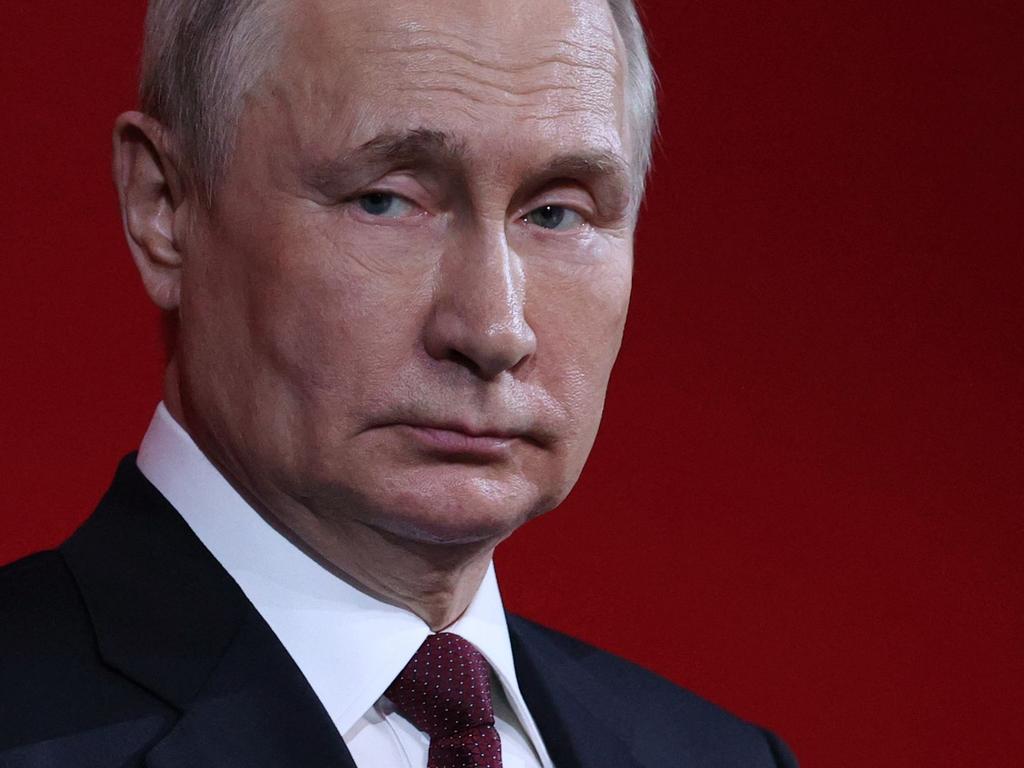
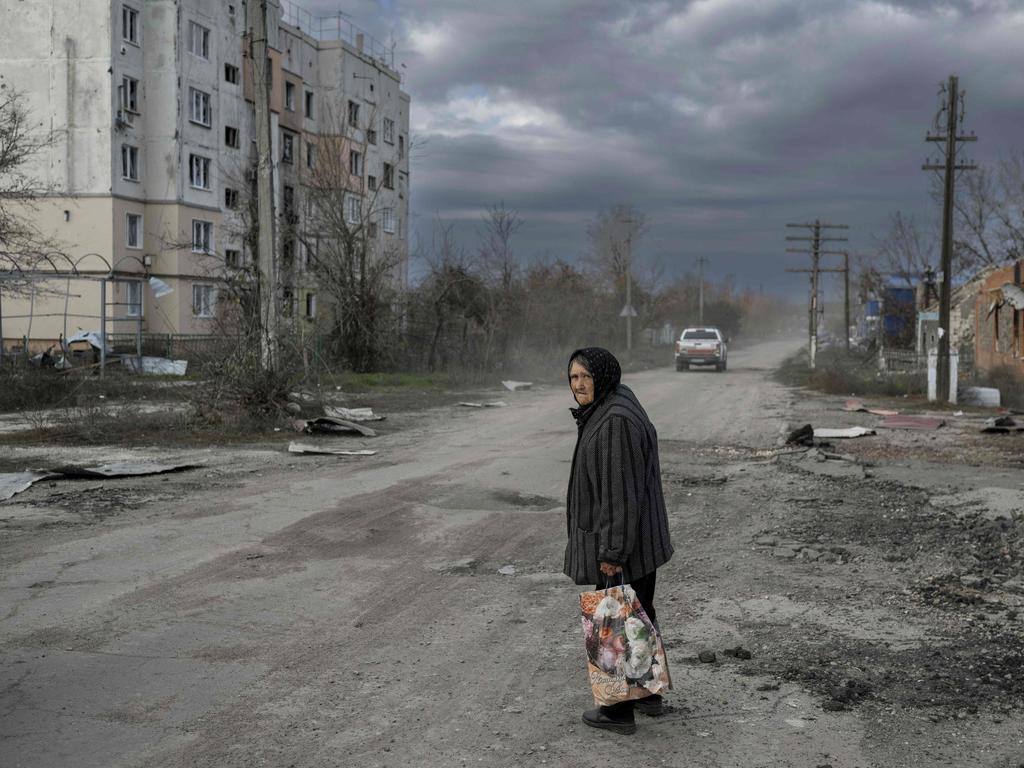
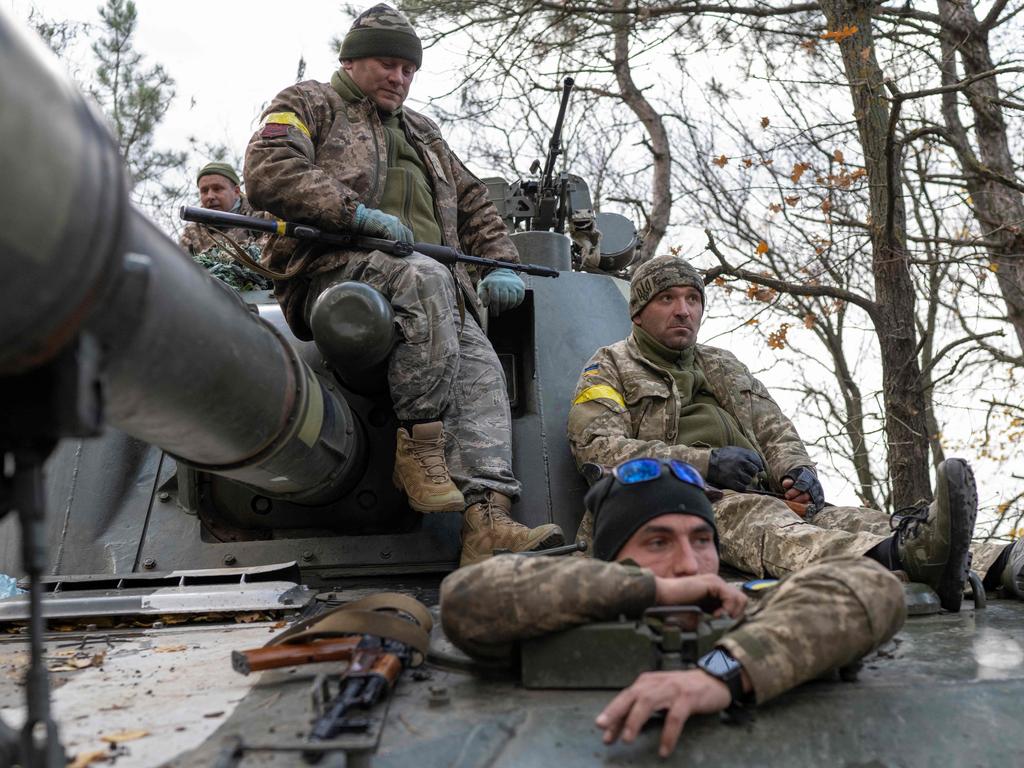
Ukraine’s troops have for weeks been capturing villages en route to the city near the Black Sea and Kremlin-installed leaders in Kherson have been pulling out civilians.
But Ukraine responded with scepticism to the Russian announcement. Ukrainian presidential adviser Mykhaylo Podolyak said some Russian troops remained in the city.
“We see no signs that Russia is leaving Kherson without a fight,” he said on Twitter.
“Ukraine is liberating territories based on intelligence data, not staged TV statements.”
Kremlin supporters meanwhile rushed to justify the decision. The head of Russian state media group RT, Margarita Simonyan, said the retreat was necessary in order not to leave Russian troops exposed on the west bank of the Dnipro River and “open the way to Crimea”.
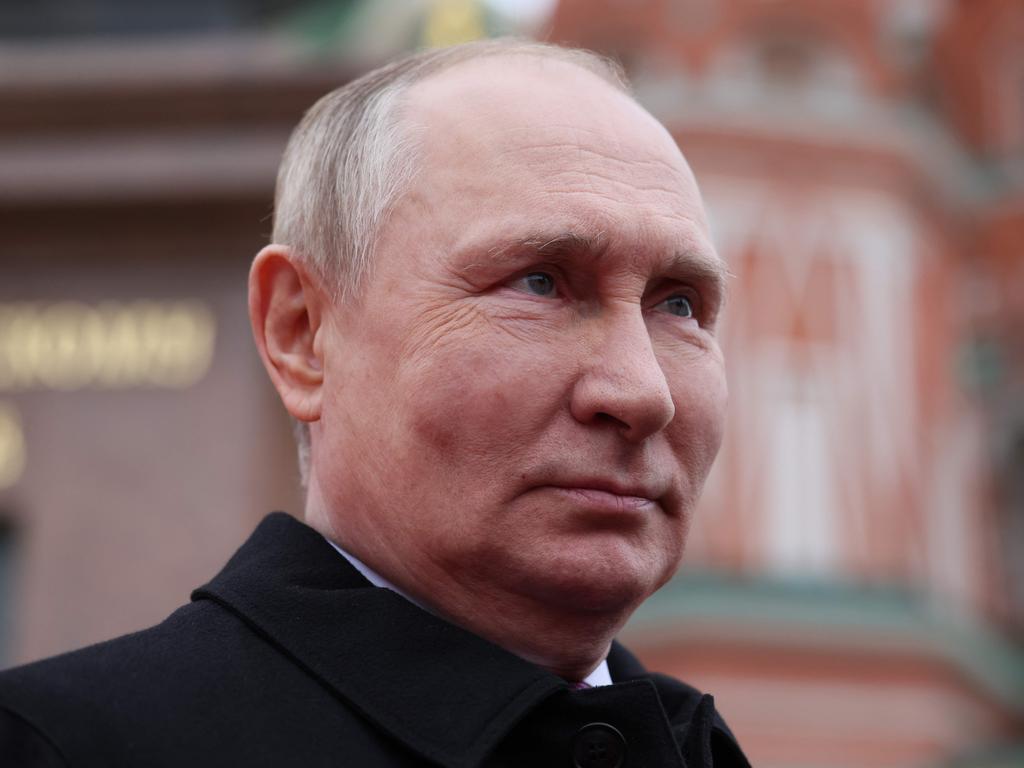
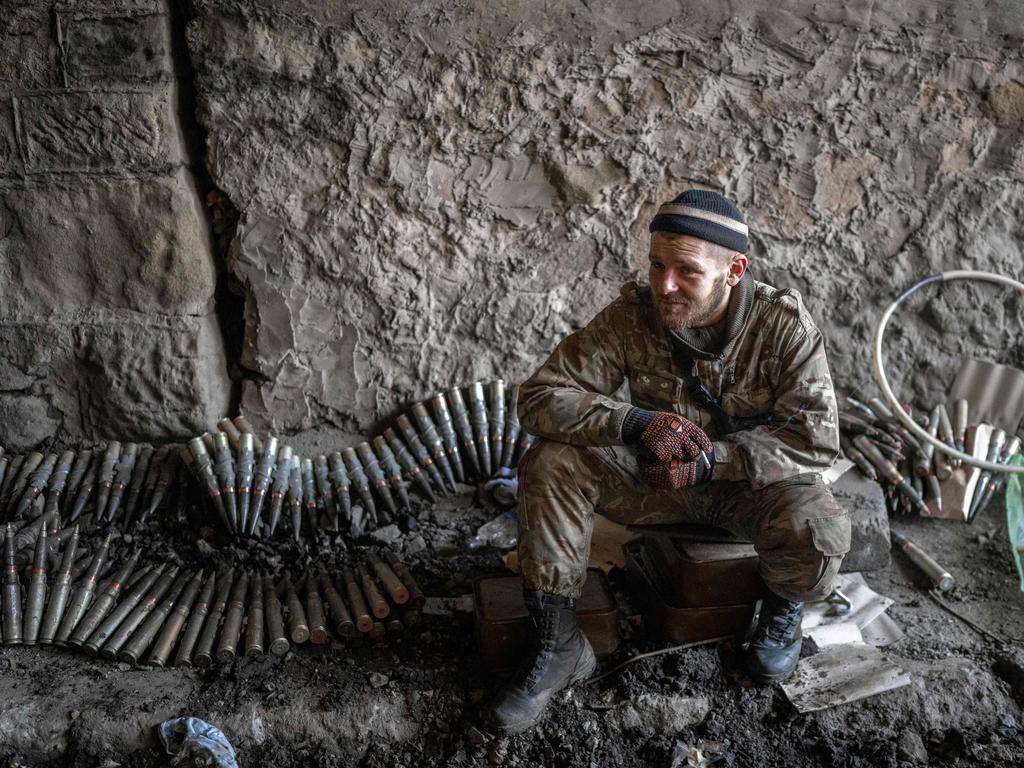
Chechen strongman Ramzan Kadyrov said the decision was “difficult but fair”. Putin ally Yevgeny Prigozhin, who is the founder of the Wagner mercenary group and has been critical of Russia’s military strategy in the campaign, was more ambiguous.
“It is important not to agonise, not to beat around in paranoia, but to draw conclusions and work on mistakes,” his press service wrote on social media.
Russia losing the Kherson region would return Ukraine important access to the Sea of Azov and leave President Vladimir Putin with little to show from a campaign that has turned him into a pariah in the eyes of the West.
The retreat will put pressure on Russian control of the rest of the Kherson region, which forms a land bridge from Russia to Crimea, the peninsula which Moscow annexed in 2014.
Kherson was one of four Ukrainian regions that Russia declared it had annexed in September, shortly after being forced to withdraw from swathes of territory in the northeastern Kharkiv region.
REGION’S DEPUTY GOVERNOR DIES IN MYSTERIOUS CRASH
The announcement of the retreat came just hours after officials said the Moscow-installed deputy head of the Kherson region, Kirill Stremousov, 45, a key supporter of annexation, had died in a supposed car crash.
Hours before his death, Stremousov had typically accused the West of being behind the Ukrainian advance in Kherson.
Stremousov had claimed he was in the city helping people flee. The place he was killed is Russian controlled and 200km from Kherson city.
Ukrainian blogger and politician Anatoly Shariy said: “Several sources confirmed the death of Stremousov.
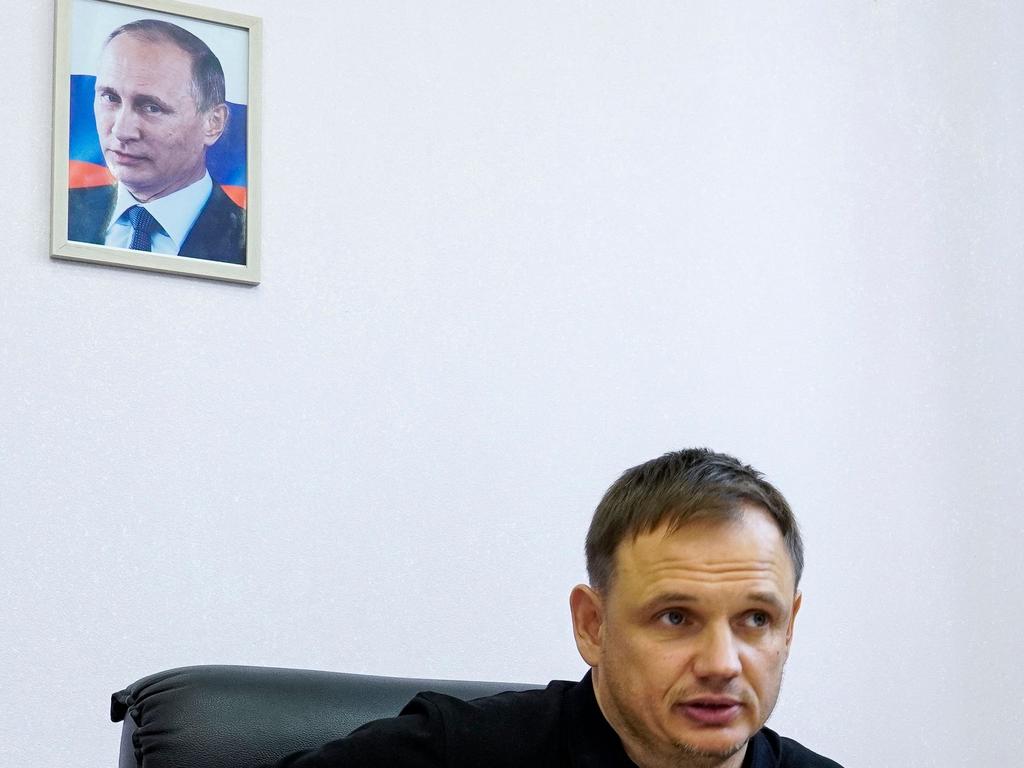
“If this is true, then I understand what kind of ‘traffic accident’ this was right now when the surrender of Kherson is obvious.”
He appeared to imply that Mr Stremousov had many enemies for supporting the Russian occupation forces, which are now pulling back.
He added: “And the main thing – if he was killed, and exactly in the way I was told it happened, then it was no Ukrainian Army spies killing him.”
Political analyst Sergey Markov said: “Kirill Stremousov, deputy head of the Kherson region, was killed. It’s all very strange.
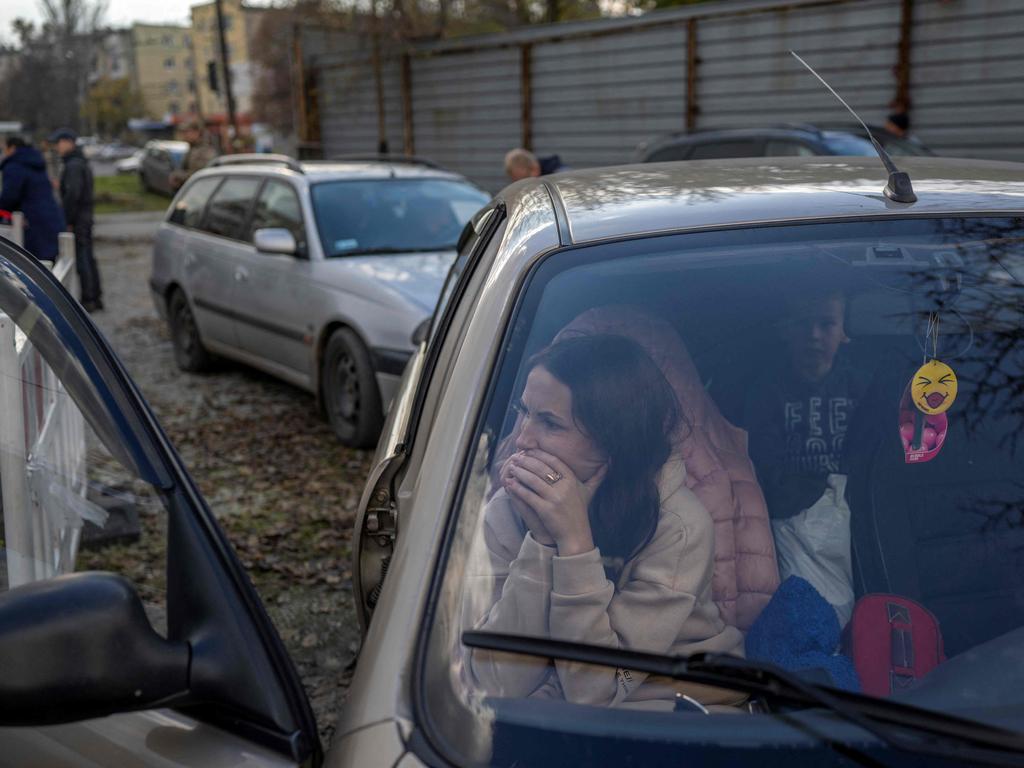
“He kept saying that Kherson could not be handed over and it would not be handed over.
“He died on the day when they began to actively talk about the surrender of Kherson.
“He died not from a terrorist attack, but in an accident. Not in Kherson, but in Genichesk
“With him in the car was a military commander Kotz, he did not die.
“All this is very strange.”
It cmes as an old associate of Mr Putin who was demoted after publicly criticising the Kremlin leader died from an unexplained “ serious disease “.
Viktor Cherkesov, once Putin’s trusted deputy and the former chief of the Federal Drugs Control Service (FKSN), has died aged 72.
Mr Cherkesov was once in charge of crushing Soviet dissidents and was instrumental to the Russian President’s rise to power, but the pair later had strained relations.
No further details were immediately given on Mr Cherkesov’s cause of death in St Petersburg.
UKRAINE REJECTS US PUSH FOR RUSSIA PEACE DEAL
Ukraine has publicly rejected private calls from the United States to work towards a pace deal with Russia.
Despite White House warnings of “Ukraine fatigue”, Mykhailo Podolyak, advisor to Ukrainian President Volodymyr Zelenskyy, said they would not negotiate until Vladimir Putin was removed from office.
“Ukraine has never refused to negotiate. Our negotiating position is known and open,” Mr Podolyak wrote on Twitter, adding that peace talks can only begin once Russia fully withdraws from all occupied territories.
“Is Putin ready? Obviously not. Therefore, we are constructive in our assessment: we will talk with the next leader of RF [the Russian Federation].”
Important: Ukraine has never refused to negotiate. Our negotiating position is known and open.
— Михайло ПодолÑк (@Podolyak_M) November 7, 2022
1. First, RF withdraws troops from 🇺🇦
2.After everything else
Is Putin ready? Obviously not. Therefore, we are constructive in our assessment: we will talk with the next leader of RF.
Rejecting peace negotiations until regime change in Russia effectively rebukes the White House’s “calculated attempt to ensure the government in Kyiv maintains the support of other nations facing constituencies wary of fuelling a war for many years to come”.
The US warning comes as the Democratic Party is predicted to lose control of Congress in the midterm elections, with the Republican Party considered less willing to rubber stamp huge spending packages amid the country’s inflation and economic downturn.
“While US officials share their Ukrainian counterparts’ assessment that Putin, for now, isn’t serious about negotiations, they acknowledge that President Volodymyr Zelenskyy’s ban on talks with him has generated concern in parts of Europe, Africa and Latin America, where the war’s disruptive effects on the availability and cost of food and fuel are felt most sharply,” an anonymous source told the Post.
“Ukraine fatigue is a real thing for some of our partners.”
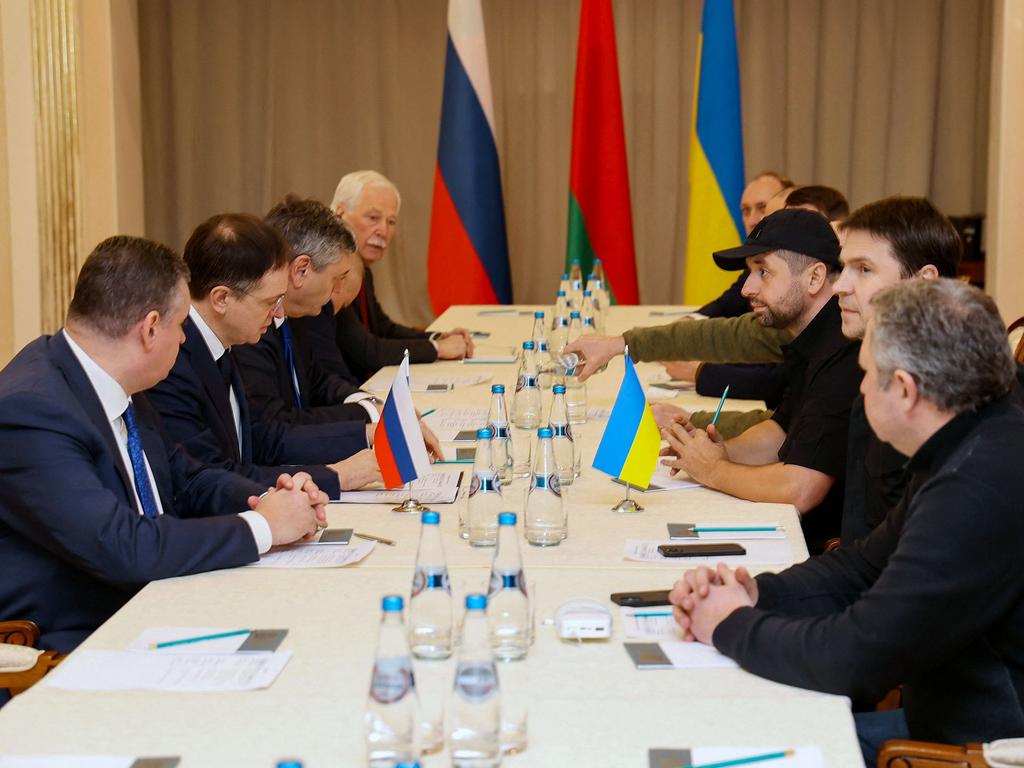
Two days after the report, Zelenskyy set preconditions to holding “genuine” peace negotiations with Russia.
“One more time: restoration of territorial integrity, respect for the U.N. charter, compensation for all material losses caused by the war, punishment for every war criminal and guarantees that this does not happen again,” he told The Wall Street Journal.
“Those are completely understandable conditions.”
Since Putin claimed dominion over regions of Ukraine’s east and south in September, Kyiv has maintained that it would not negotiate with Russia until Putin was removed from leadership.
Russia’s deputy foreign minister, Andrei Rudenko, said they have and remain ready for negotiations.
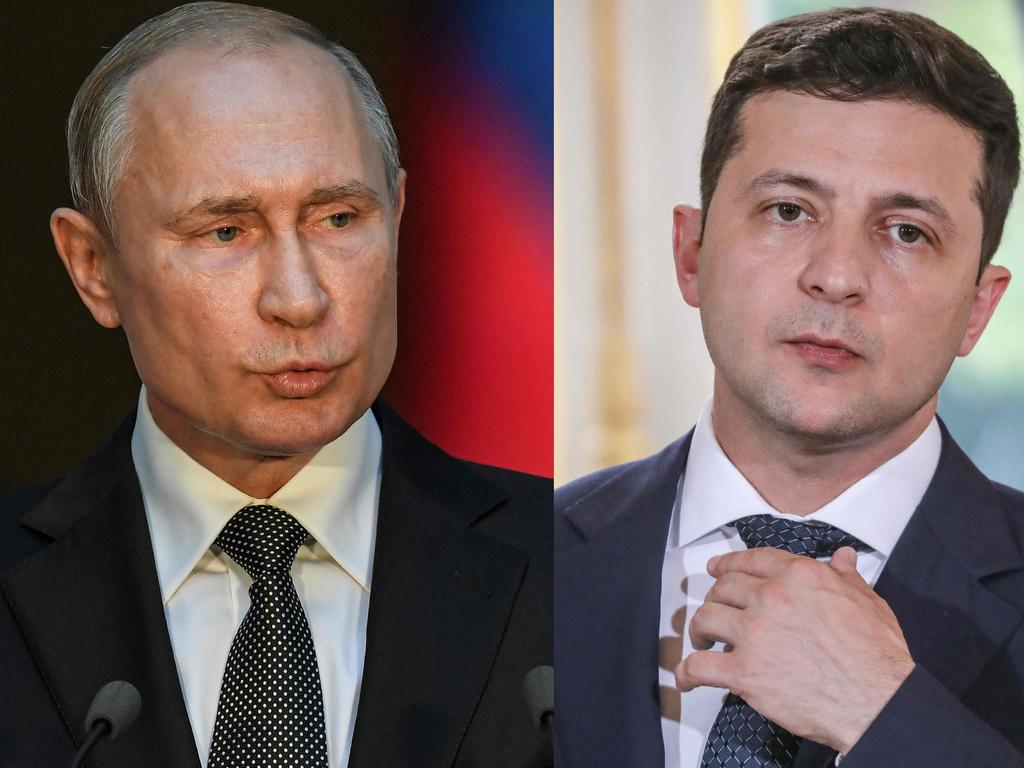
“From our side there are no preliminary conditions whatsoever, except the main condition– for Ukraine to show goodwill,” he said, according to state news agency RIA.
Mr Podolyak, however, said it was time to “stop playing this word game”, suggesting that “negotiations” mean recognising the Kremlin’s ultimatums and a ceasefire would stop Ukraine’s counteroffensive to allow Russia to regroup.
“A question to ‘peacekeepers’: what do you mean by the word ‘negotiations’? Russian ultimatums are well-known: ‘We came with tanks, admit defeat and territories loss’.” Mr Podolyak said.
“This is unacceptable. So what to talk about? Or you just hide the word ‘surrender’ behind the word ‘settlement’?
UKRAINE VOWS TO SHOOT DOWN ENEMIES
Ukraine announced on Monday that it had received more air defence systems from Western military allies, saying the weapons would help defend against Russian attacks that have recently targeted energy infrastructure.
“NASAMS and Aspide air defence systems arrived in Ukraine! These weapons will significantly strengthen the Ukrainian army and will make our skies safer,” Defence Minister Oleksiy Reznikov said on social media.
“We will continue to shoot down the enemy targets attacking us. Thank you to our partners — Norway, Spain and the US,” Mr Reznikov added.
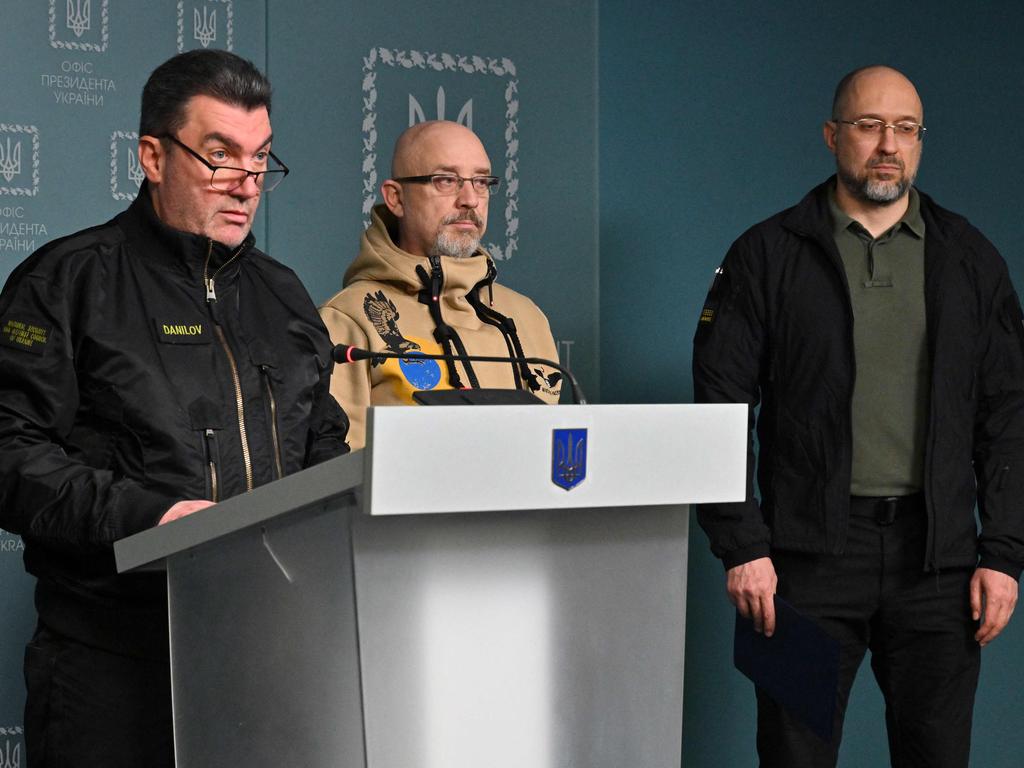
Russian strikes over the past month have destroyed around a third of Ukraine’s power stations and the government has urged Ukrainians to save electricity as much as possible.
Authorities in Kyiv said on Monday that the situation around the city’s ability to supply energy to residents remained “tense” and urged Ukrainians in the capital to limit use of electricity in peak hours.
“We ask all residents of the region to support energy workers in the struggle on the energy front,” it said on the social media platform Telegram.
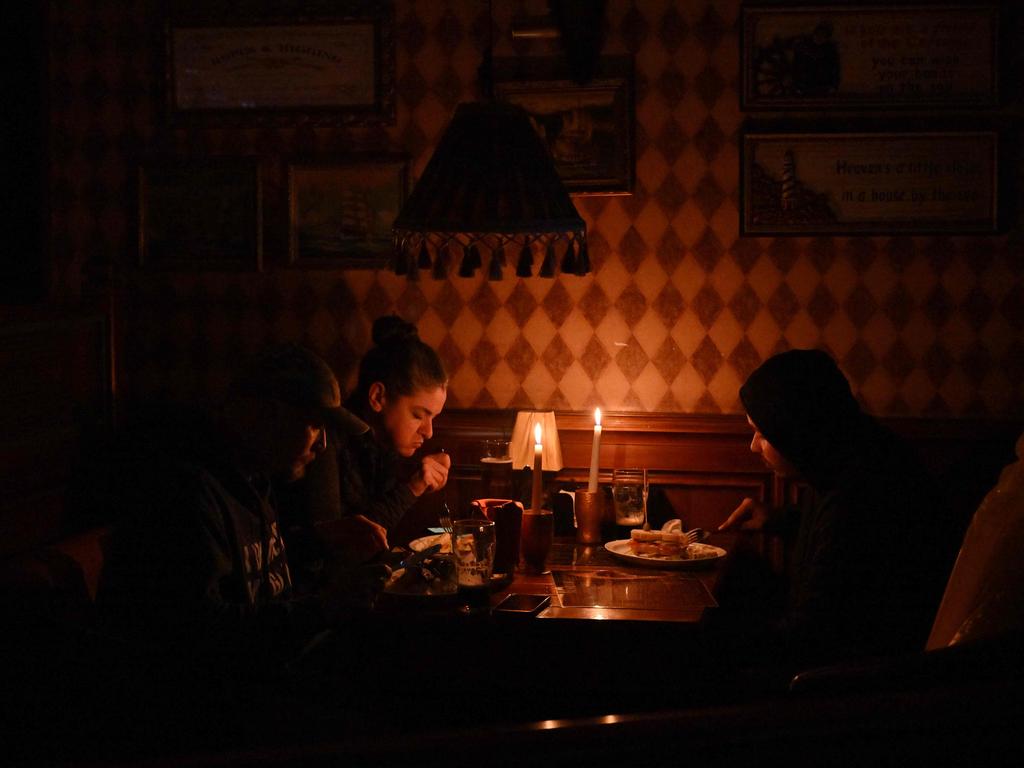
It comes as Ukrainians are living with 6pm blackouts to save power.
When their apartment block in northern Kyiv goes dark as scheduled, residents Iren Rozdobudko and Igor Zhuk are ready.
She lights a candle, he switches on his head torch, and they settle in for a quiet evening.
Flashlights as well as candles, bought long ago for decorative purposes, keep their flat illuminated.
In the bathroom, they have put up a camping lantern.
Outside, the neighbourhood is plunged into darkness, the odd faint light emerging from the windows of some nearby apartments.
The pitch-black footpaths are lit up here and there by residents using torches or mobile phone lights to guide them home.
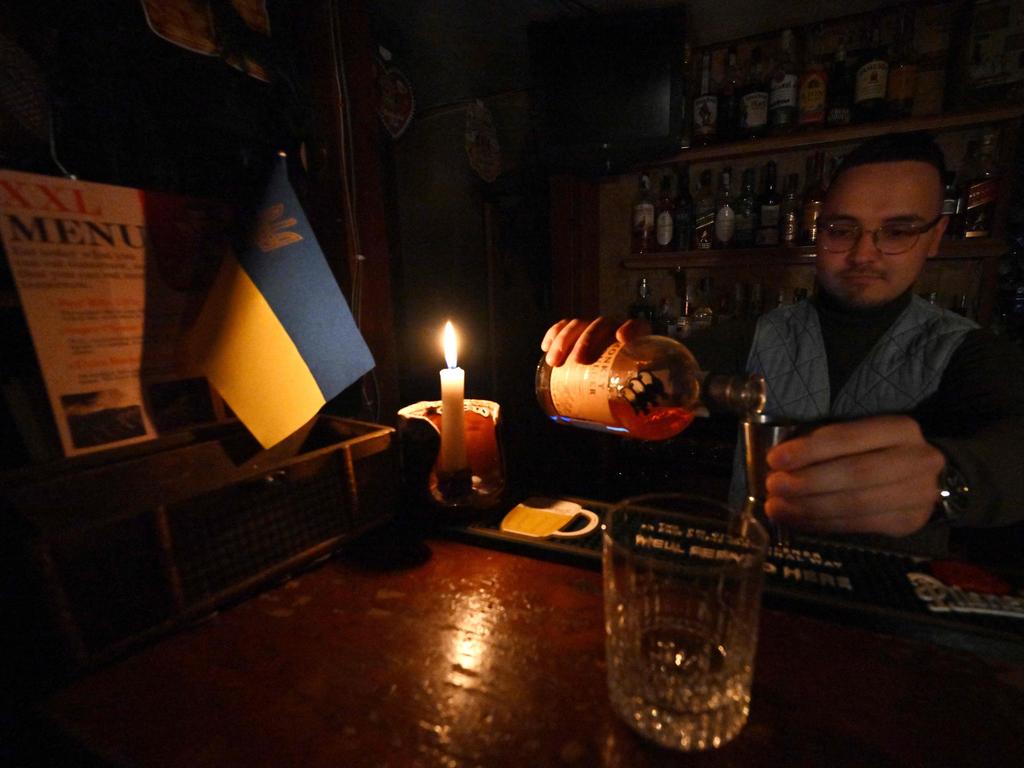
For much of the past month, Russian strikes have heavily targeted Ukraine’s energy infrastructure, severely damaging the electricity network.
To ease the strain on the grid and avoid a total blackout, national energy operator Ukrenergo has imposed controlled power cuts in the capital and elsewhere across the war-torn country.
Residents can consult the official schedule for rolling blackouts to pinpoint exactly when their lights will go out.
But so widespread is the damage to Ukraine’s electricity infrastructure that Ukrenergo said at the weekend the controlled blackouts were not enough to relieve the grid and additional power cuts had to be imposed.
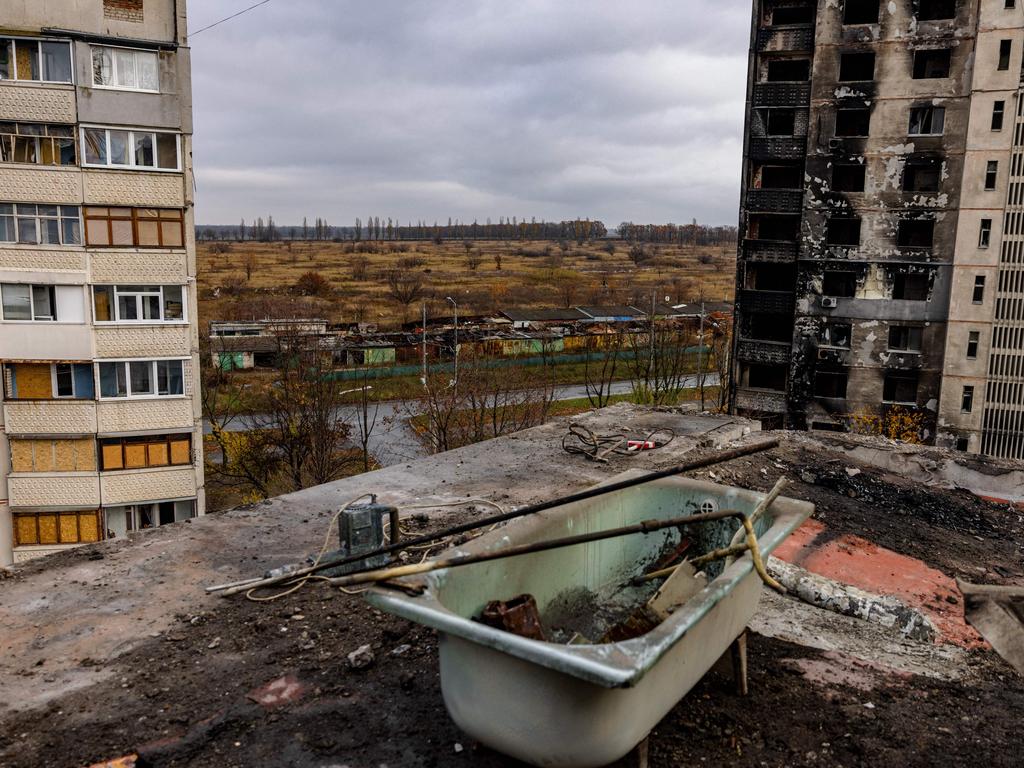
On Sunday, even the streets near the presidential office in Kyiv, which had so far escaped the power outages, briefly went dark, AFP reported.
Parts of the capital also experienced interruptions to water supplies last week, following renewed Russian missile attacks.
The recent salvo of Russian strikes on the capital, after a months-long lull, is a stark reminder of the war raging on the front lines in eastern and southern Ukraine, where deadly bombardments are a daily occurrence.
In the heart of Kyiv, the city’s iconic Independence Square, known as the Maidan, regularly goes dark.
Without the streetlights on, only the headlights from passing cars cut through the blackness after nightfall. Restaurants have adapted too, offering candlelit dinners.
Almost 4.5 million Ukrainians were temporarily without electricity nationwide on Thursday night, President Volodymyr Zelensky said, accusing Russia of “energy terror”.
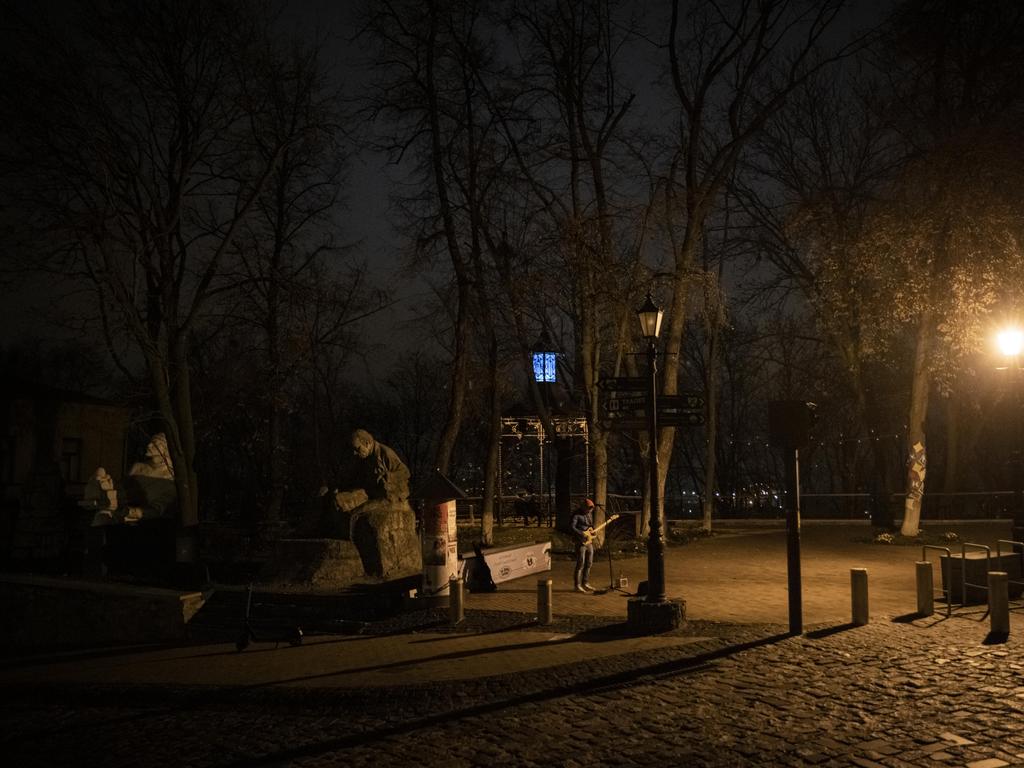
Kyiv Mayor Vitali Klitschko has warned of a “worst-case” scenario this winter with “no electricity, water or heating” if Russia kept up its attacks.
He said the city was preparing more than a thousand heating points where residents could keep warm as the weather turns ever colder.
“We have bought electric generators, stored water and everything necessary for these heating points to accommodate people,” he said.
Zhuk, the torchlight on his forehead burning brightly, says he has resigned himself to a challenging time ahead.
“It will probably be a bit more difficult this winter, or maybe even a lot more difficult. But we’re not in the worst situation yet.” In a corner of the flat, Rozdobudko visibly moved, points to a letter on display. It was written by her grandchildren, who have found refuge in the French city of Marseilles.
“Hello grandpa and grandma. Is life going well in Ukraine?” the letter reads. “If not, come and join us in France. We love you very much and we support you.”
With AFP
PUTIN MAKES CHILLING ‘HIROSHIMA’ THREAT
Vladimir Putin has sparked concern among western leaders after he referenced the Hiroshima and Nagasaki nuclear attacks in a chilling call with French President Emmanuel Macron.
The Russian leader allegedly told Mr Macron that the bombings – which led to the end of World War II – showed that “you don’t need to attack the major cities in order to win”.
The two US bombings in August 1945 killed between hundreds of thousands of people and forced Japan into surrendering to the Allies.
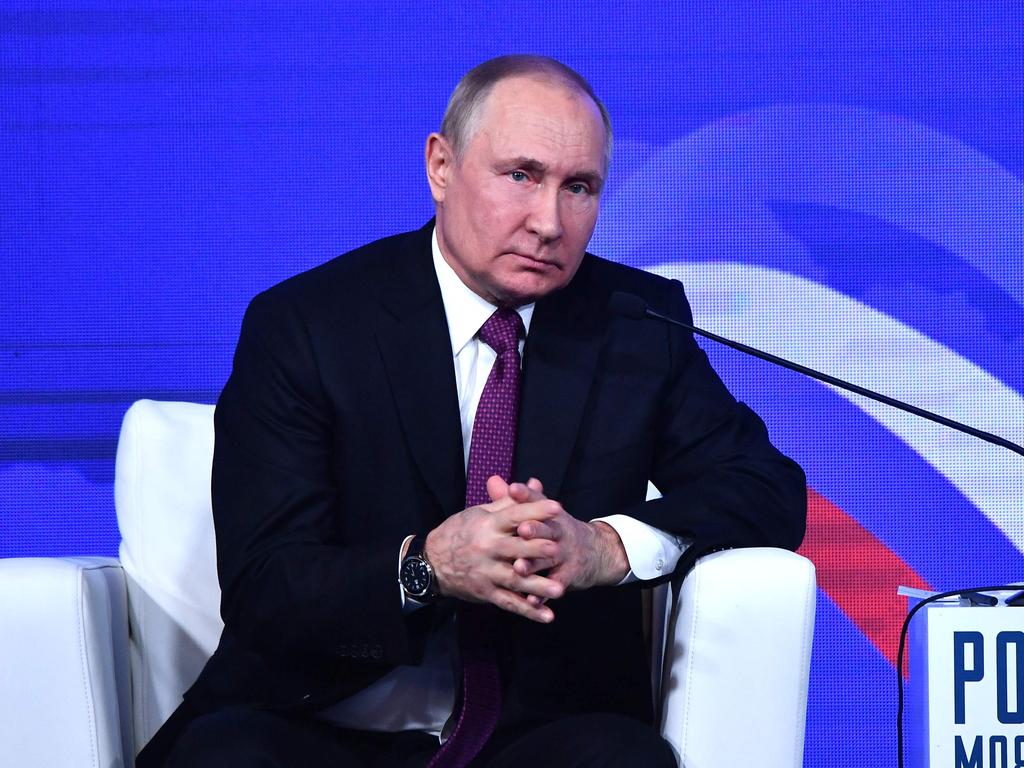
The chilling warning comes as Mr Putin ramps up threats about using a tactical nuclear weapon in Ukraine to counter losses on the battlefield, reports the Sun.
According to the source, Mr Macron was left “distinctly alarmed” by the comment.
“It sounded like a very heavy hint that Putin might detonate a tactical nuclear weapon in the east of Ukraine, while leaving Kyiv intact. That appeared to be the thrust of his remarks,” they said, according to the Daily Mail.
“The two presidents have undoubtedly discussed the risk of nuclear weapons use,” reportedly said.
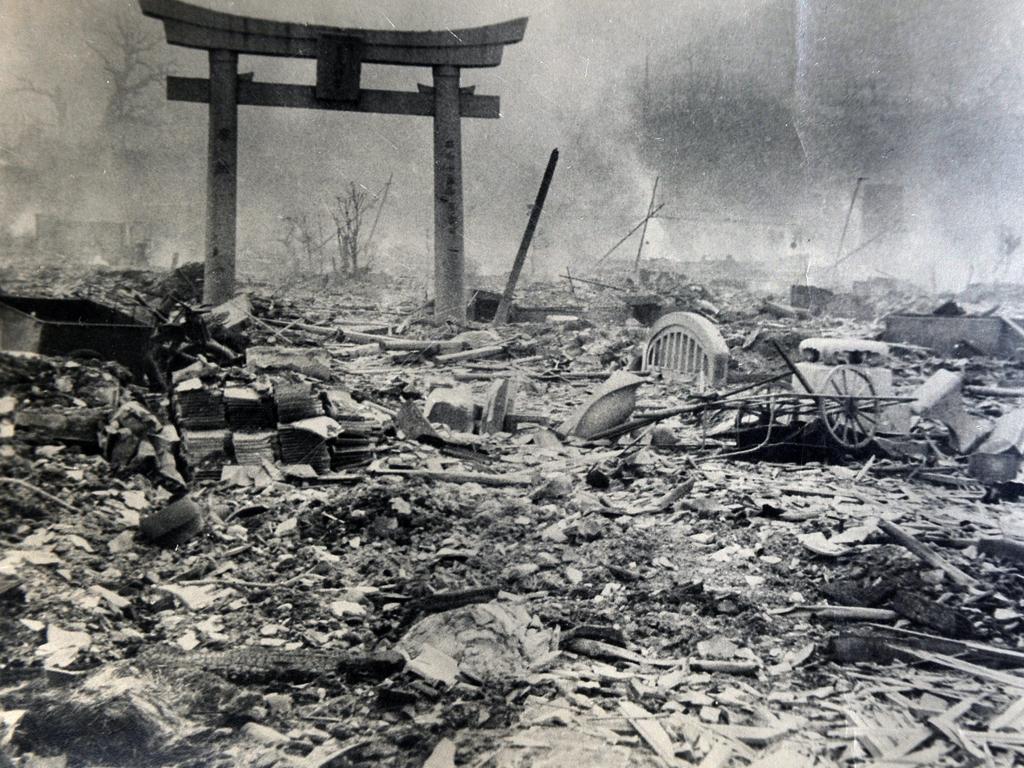
“Putin wants to get the message across that all options are on the table, in line with Russian doctrine relating to nuclear weapons.”
The British government was said to be so concerned about the threats that then Prime Minister Liz Truss became fixated with the weather forecast in case the wind blew a radioactive cloud over the UK.
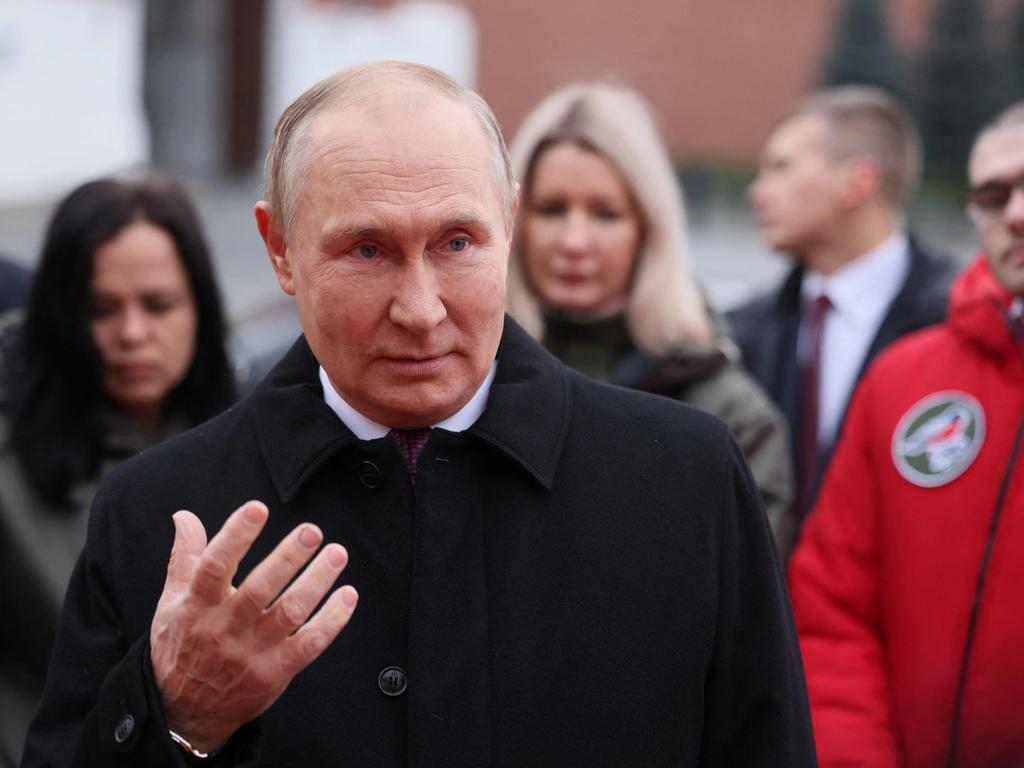
Ms Truss was allegedly told by UK intelligence chiefs that Mr Putin might explode a nuclear missile in the air over the Black Sea in a bid to avoid all-out nuclear war with the west.
There were also concerns that Mr Putin might “go nuclear” after Ukrainian forces attacked the bridge connecting Russia and Crimea.
Mr Putin has previously warned he would “use all the means at our disposal” if Russian territory came under threat.
The threat comes as frustrated Russian generals were caught discussing the use of a tactical nuclear missile in Ukraine.
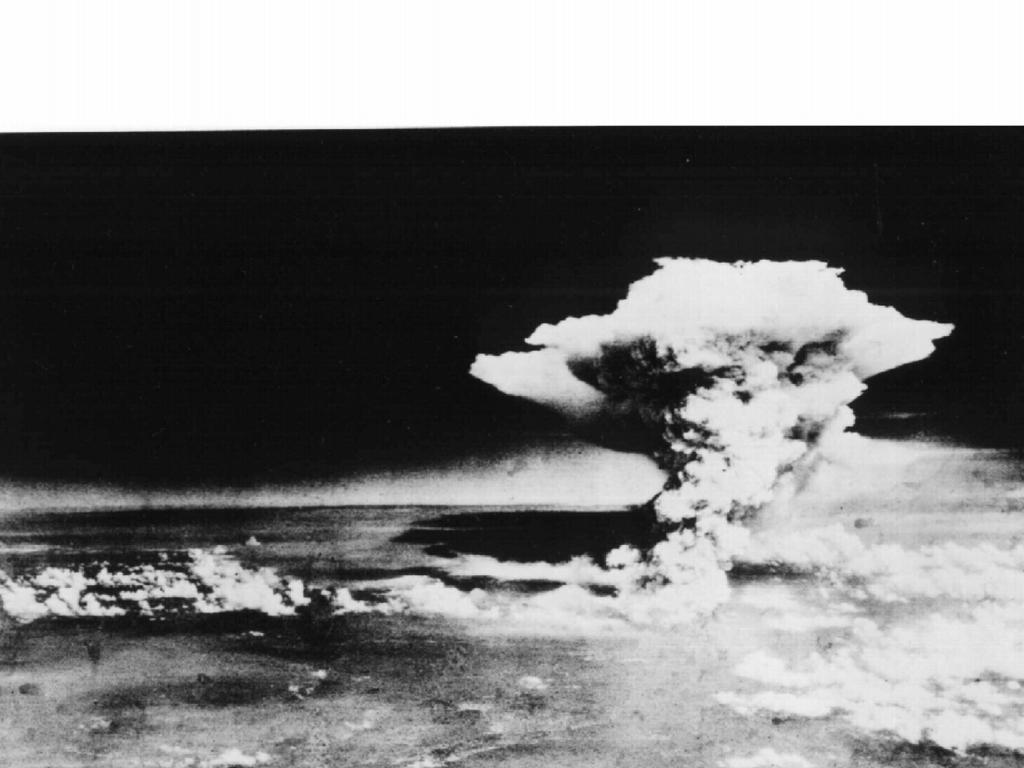
US intelligence reportedly believes Mr Putin’s officials spoke about when and how Moscow might use such a weapon, following a series of Russian setbacks on the battlefield.
Mr Putin was reportedly not part of the conversations in the Kremlin, which come against a backdrop of increasingly tense nuclear rhetoric between Russia and the west.
John F Kirby, a National Security Council official, declined to comment on “the particulars” of the language used by Mr Putin’s insiders but added: “We’ve been clear from the outset that Russia’s comments about the potential use of nuclear weapons are deeply concerning, and we take them seriously.
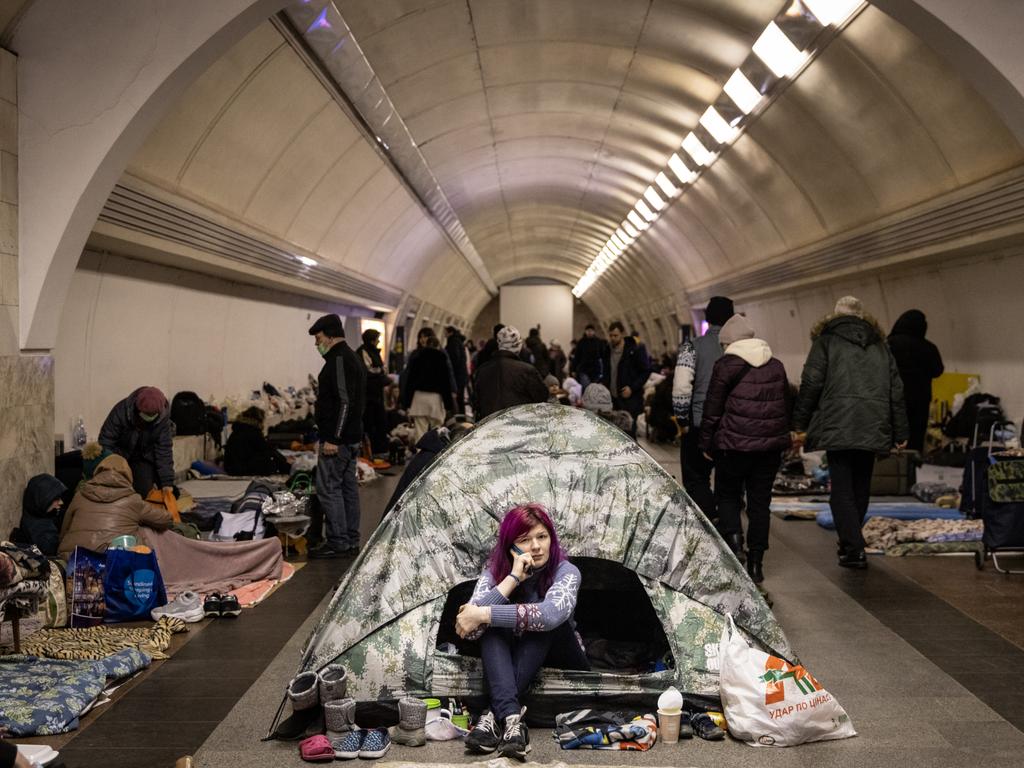
“We continue to monitor this as best we can, and we see no indications that Russia is making preparations for such use.”
Russia’s terrifying nuclear arsenal is believed to contain up to 6000 warheads, enough to cause worldwide devastation and between 200 to 300 million casualties.
That includes as many as 2000 tactical nuclear weapons, designed to be used on the battlefield to overwhelm conventional forces.
Such weapons have never been used in combat before but could be deployed in various ways, such as by artillery shells or missiles.
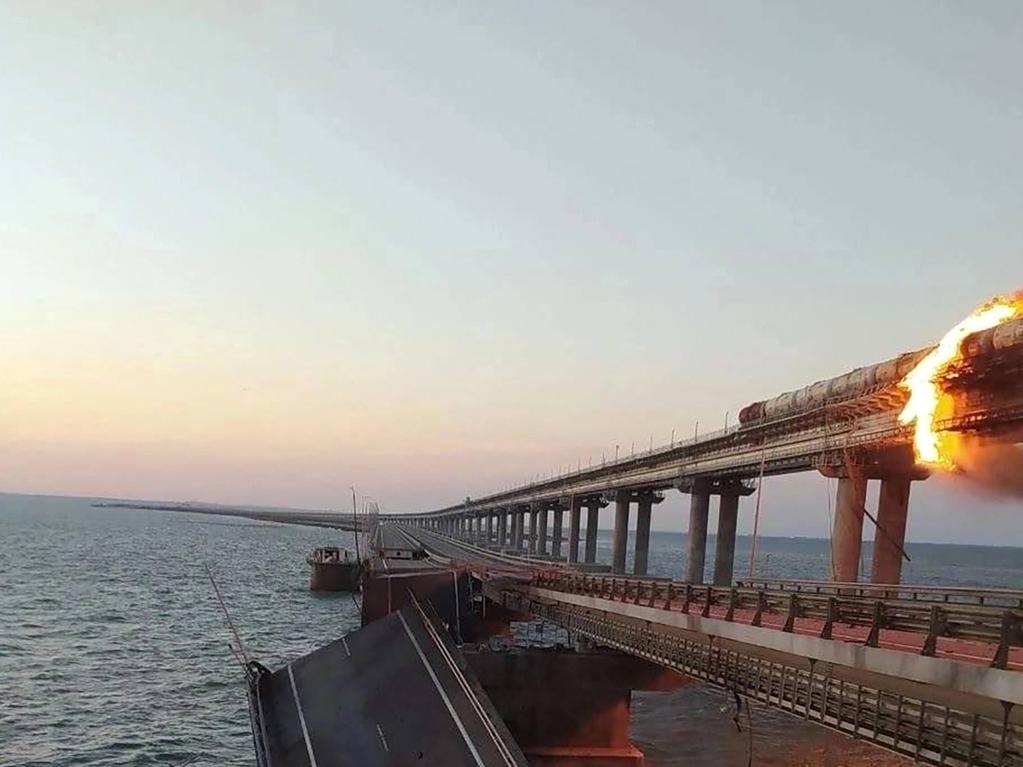
Even the use of a smaller tactical nuke could kill thousands and leave parts of Ukraine uninhabitable for years to come.
The Kremlin has also increasingly spread baseless rumours that Ukraine is planning to use a “dirty bomb” – a conventional explosive tipped with radioactive material.
Russia has been rattling its nuclear sabre while its forces continue to be pushed back, even as Moscow declared four regions as their own.
Mr Putin has been brazen in his threats of turning the already devastating war nuclear – and Russian military doctrine does leave the door open for them to use a nuclear weapon.
Mr Putin’s biggest submarine, Belgorod, which can be armed with “apocalypse” nuclear torpedoes is on the move, and there have been reports a convoy linked to a nuclear unit on the move in Russia.
And now the world waits to see if Mr Putin will make good on his threats as his army suffered furthering humiliating defeats as Ukraine storms towards Kherson.
Defence sources reportedly claim one of the options on the table is for Mr Putin to detonate a nuclear weapon on the border in a massive show of force, reports The Times.
– With AFP
Originally published as ‘Withdraw’: Shock blow for Putin as official dies in mystery crash




